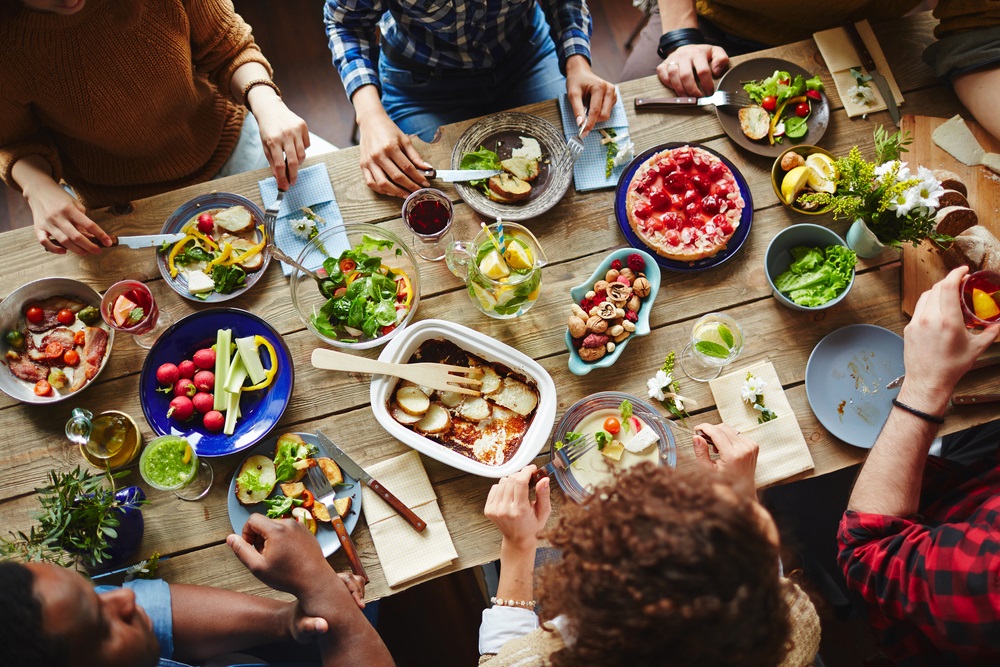
23 Aug Farm-To-Fork 101
You are what you eat. Everything from the soil your produce is planted in, the calibre of the seed being sown, to the pesticides used and harvestings process – it all feeds into the quality of the product. Because we are beginning to really understand that the state of our produce directly affects our health and wellness, more consumers are educating themselves on how their fruit, veg and meat is being reared.
Though the social movement of replacing GMO’s with nutrient-filled ingredients that were grown organically and locally isn’t a particularly new concept, it has gained a great deal of traction in the last 3 – 5 years. So let’s break it down:
WHAT DOES FARM-TO-FORK MEAN?
Farm to fork emerged out of concern that we were eating too much processed food. We needed to change our lifestyles or we would, quite literally, end up eating ourselves into early graves. Health fundis got the ball rolling by encouraging consumers to make the switch to organic produce, but it was dedicated eco-warriors that managed to get the farm to fork movement off the ground.
In essence, farm-to-fork is a direct channel between agronomist and consumer. By growing your fruits and vegetables in the same place you will use them, you meet certain ethical and environmental standards. Once you claim to do this, consumers are guaranteed that you are being green about the way you farm – from using organic/natural pesticides and insecticides to the ethical treatment of your livestock.
WHAT ARE THE BENEFITS?
If you read my piece about the benefits of buying local, you already know why farm to fork should be something we all try to pursue. The produce is fresher because it hasn’t had to travel far to get to you – which also means the carbon footprint between you and the farm to fork establishment is minimised too. Fruits and vegetables are generally organic, though the agricultural practices really are up to the farmers themselves to decide. This is why I tend to prefer farm-to-fork’ers who let the public walk through their grounds as the transparency puts my mind at ease.
Eco-benefits aside, many farm-to-fork fundis also believe that if you know where your food is coming from, it adds to the experience of eating it.
HOW CAN I GET INVOLVED?
The heavy-hitters in local food distribution have claimed to stock organic products for over a decade, but when you thoroughly investigate their criteria, you can see for yourself that they are misleading.
Challenge yourself to switch out your weekly shop at the chain grocery store and visit your local farmers market instead. While it may not be farm-to-fork in the truest sense of the word, you can have a conversation with the vendor sourcing your butternut squash, or pick the brain of the baker to see how he farms his own wheat or oats that is later ground into flour.
Restaurants have really taken to this concept, and there are a few farm-to-fork eateries all over the country that you can support. Westerncapers can patronise Babel at Babylonstoren for a 100% guilt-free and green dining experience, while those in the Gauteng area have Fermier Restaurant and Leafy Green to enjoy. Knysna can look forward to the weekly forages of Brett Garavie at VegTable, and East London-based diners can pop into Earth Forrest for food farmed through permaculture.
RELATED ARTICLES:
https://www.stellenboschexperience.co.za/blog/entry/farm-to-fork-stellenbosch-ticks-all-the-boxes-for-foodie-travellers
https://www.eetrite.com/blog/south-africas-farm-to-table-restaurants/
https://www.eatout.co.za/article/south-africas-first-farm-table-snail-concept/



No Comments